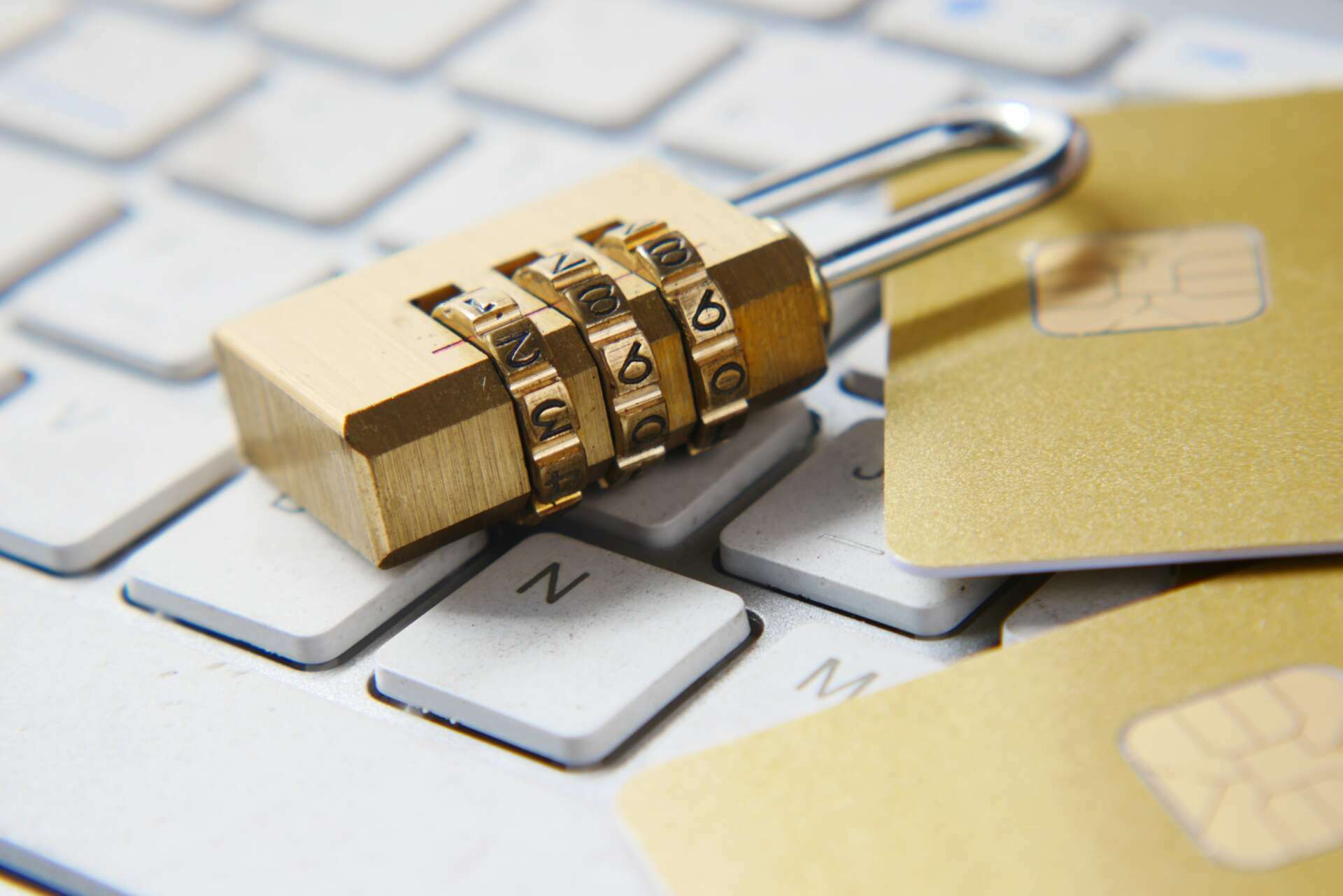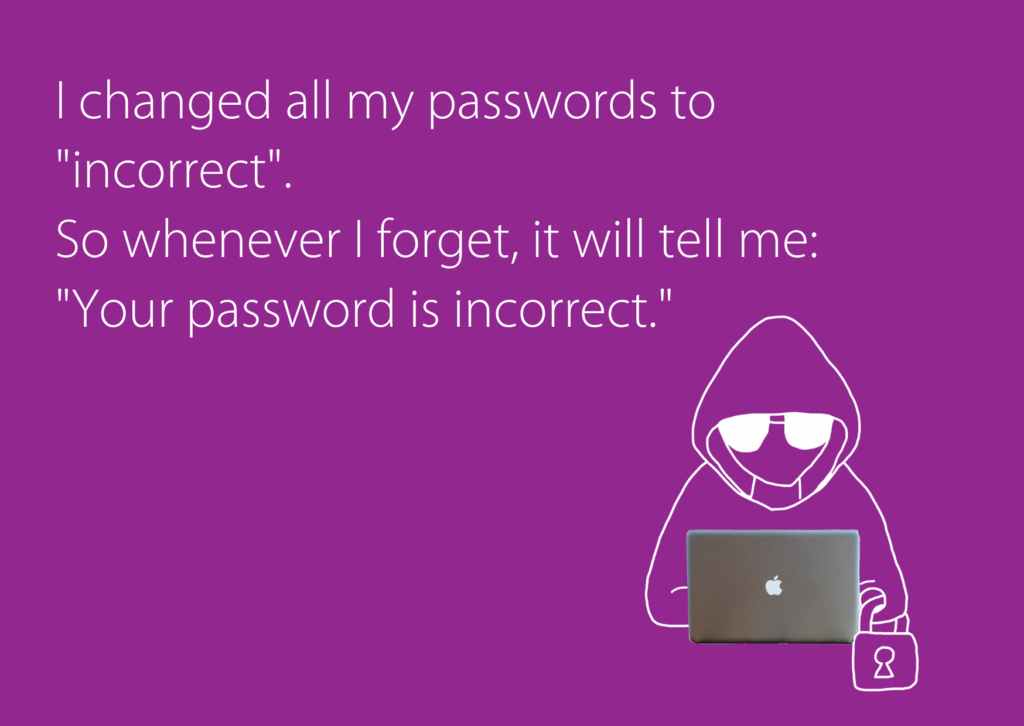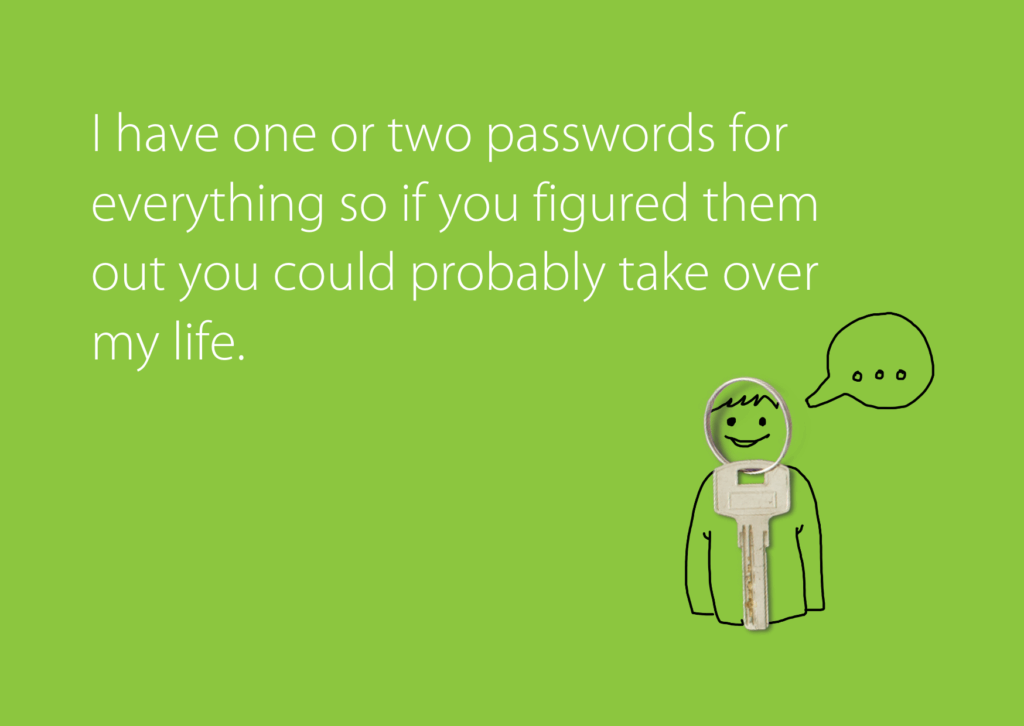
Creating a password doesn’t sound like a difficult task, but sometimes it is. We often make fun of websites asking us to use strong passwords. Use longer password, use at least 1 numerical character, use at least one symbol, one upper case character,… But it’s for a reason. Weak passwords play a huge role in any hack. If you’ve been using a date of your birthday or your dog’s name as a password to access your bank account since you’ve been 18, let us tell you this is not safe.
Managing passwords is not only important for individuals but the responsibility falls on businesses too. Without proper password habits your employees might put your company at risk. Your systems may be secure and complex, but attackers may choose a different method – to wait for your employee to make a mistake. Educate all your employees at all levels from bottom to top, make them build good password habits and make them think before they click. Creating a cybersecurity-awareness culture in your company can save you a lot of headaches. Cyber-aware, educated employees can stand in the first line of defense.
Some of these tips may seem obvious, but practice makes perfect.

1. Make your passwords strong
As we mentioned earlier, weak passwords are easy to crack. Ask yourself a question. If there was a hacker trying to gain access to your account, how quickly would she/he be able to guess your password? Do you use your personal, easily accessible information about yourself in your password (date of your birthday, your wife’s name, etc.)? Do you use any popular strings like „qwerty“, “password” or „1234“? Make your password more unpredictable, don’t follow a pattern and use randomly generated passwords instead. It is recommended to have your passwords 15-20 characters long. Shorter passwords can be cracked by brute-forcing.
2. Store your passwords in password manager
Worried that you won’t be able to remember all those strong and unique passwords? Then password manager might come in handy. Password manager can store all your passwords in one place. It uses encryption to protect your data. Maybe now you are thinking if it is safe to provide your passwords to another third-party app and store it all there. Well, there are some risks too, as nothing online is 100% safe, but it is one of the best available options nowadays. But don’t forget to look for a trusted password manager. You can try Keepass. Secure your app with strong password and back it up regularly.
3. Change your passwords often
Many people use the same password for years. It is recommended to change your password few times a year, and the frequency also depends on what is the password used for and how strong it is. Be sure to change your password when there was a password leak, someone tried to access your account or you logged-in from a public wi-fi. Check if your mail or phone was breached.

4. Create a unique password for each account
Using the same password for every account increases your account vulnerability. Never use the same password for multiple accounts. Don’t make it easier for attackers to gain access to all your accounts by cracking your only password.
5. Two-Factor authentication is your best friend (2FA)
Even though you may find it annoying to confirm each and every login or transaction, it is strongly recommended to do so. Many apps or websites give you an option to enable 2FA and when they do, take advantage of it. It is an extra protection which makes it harder for attackers to get to your personal account. The most common forms are SMS or notification with unique passcode or the use of biometric data (which may be also risky, but let’s talk about it next time).
We are in the process of finalizing. If you want to be redirected to our old version of web site, please click here.